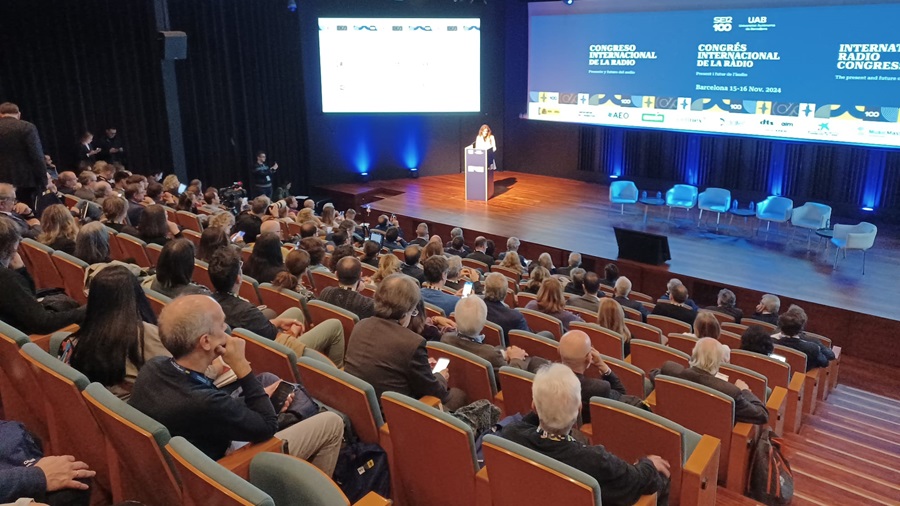Iñaki Gabilondo inaugurates the radio congress by emphasising the role of journalism in the defense of democracy
Journalist Iñaki Gabilondo reflected on the phenomenon of fake news and the role of radio journalism in the defense of democracy in the inaugural conference of the International Radio Congress, organised by the UAB Faculty of Communication Studies and Cadena Ser, held on 15 and 16 November at the CaixaForum in Barcelona.

Gabilondo repeated a simile that, as he explained, he uses recurrently: “In floods, as we have seen these days, the first thing that is scarce is drinking water”. Now, faced with the avalanche of information available to the public, it is vital to preserve quality information and, therefore, he considered that “we will have to fight fake news by doing our job extraordinarily well”. And he stressed that behind these fake news there are organisations, a whole industry dedicated to “poisoning” with disinformation, and that the media “must indisputably be on the side of the defense of democracy” since, as he stated, “the media are both parents and children of democracy”.
Gabilondo showed an optimistic view of the role of podcasts, which maintain some of the key aspects of the radio, such as the unique fact that, “to listen to the radio, it is not necessary to stop doing something else: the radio accompanies the beating of our heart”. He also highlighted “the transversality” of radio as one of its defining characteristics, the ability to create a sense of community that stands out “now that we are living in an era of extreme polarisation”. And he evoked his long career in the sector over a few decades where there have never been voices announcing the end of the radio and, on the other hand, “each new element has only proved the extraordinary health of radio”.
A "model" collaboration
In the institutional speeches that opened the congress, the president of the Generalitat, Salvador Illa, congratulated the organisers and praised this congress for being “a model of collaboration between universities and the media”. He agreed with Gabilondo in highlighting the civic role of radio and journalism because “the defense of democracy begins with the defense of truth” and because “radio does not understand social, cultural or national borders”. He also defined the values of the medium by stating that radio is “company, information and community”.
UAB Rector Javier Lafuente praised the position of the Faculty of Communication Studies as “a reference for dozens of generations of journalists and researchers”, while congratulating Cadena SER for the centenary of Ràdio Barcelona, the event that has led to the organisation of the conference. For Rector Lafuente, the importance of the congress lies in the fact that “it is necessary to debate and share knowledge and experiences in order to strengthen the presence of radio both in the field of communication and in society as a whole”.
Pilar Gil, vice-president of PRISA, described the conference as a “fantastic end” to the events celebrating the centenary of the media, while thanking the UAB for its collaboration, considering “essential the joint work between the radio industry and universities throughout Spain and Latin America”. And Carlos Núñez, executive president of PRISA Media, reflected that “radio is the medium that has faced the digital revolution by building loyalty among traditional audiences and adding new ones” and that, in addition, “it is the backbone of the memory of all the generations of the past century”.
The international radio congress will continue this afternoon in various sessions on topics such as new narratives, advertising in the medium, models of music consumption and audience measurement. Tomorrow, the second day of the congress will cover sessions on artificial intelligence, the human voice vs. synthetic voice and connected cars, among others. The meeting will close with the reading of the Barcelona 2024 Manifesto on the future of radio and audio. It can be followed live on the UAB YouTube channel.
The UAB, with Sustainable Development Goals
Quality education
Partnerships for the goals